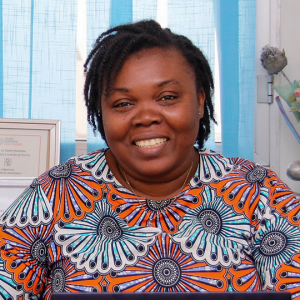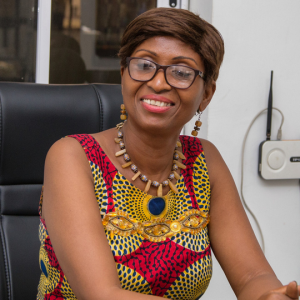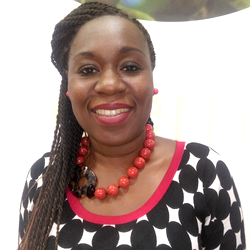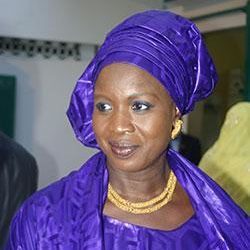The covid-19 pandemic has led to the implementation of lockdown measures in many African countries. These had a deep impact on economic activities, particularly on small and medium-sized enterprises. In…
The covid-19 pandemic has led to the implementation of lockdown measures in many African countries. These had a deep impact on economic activities, particularly on small and medium-sized enterprises.
In this context, I&P, FERDI and the Club Africain des Entrepreneurs are working together to produce a series of articles studying how African SMEs are coping with the health and economic crisis and the measures to be taken to help them overcome the crisis.
The first article in this series relates the story of Mrs. Bachir Rockya Lahilaba, founder of the Nigerien company Sahel Délices. Launched in 2015 Sahel Délices seeks to enhance the value of local agricultural resources. Juices based on local plants such as bissap or baobab are the flagship products of the company, which also produces herbal teas, spices and jams.
How did you get through the health and economic crisis of Covid-19 these last few months? What have been the impacts on Sahel Délices?
When the number of Covid-19 cases began to increase a few months ago, we quickly realized that this crisis would also directly affect the African continent. At first, everyone was afraid. We had to close Sahel Délices for a while to see how the situation would evolve. But gradually the fear was overcome, the shop opened again. We decided to continue the activity, following the sanitary measures and all the instructions of the government.
Several difficulties emerged as the crisis unfolded:
The first difficulty was the supply of fresh ingredients. Niamey had been isolated from the rest of the country during lockdown, but all the fresh products come from rural areas. Women normally come from surrounding rural market to sell their products in the city, but they could no longer move around because there were no buses between the villages and the capital. This led to an increase in the price of commodities such as baobabs, tamarins, hibiscus, etc.
The supply of packaging was the second problem. The packaging we use comes from Nigeria, but the border was closed due to the pandemic, and the costs have risen sharply. Sahel Délices tried to adapt by buying bottles made here in Niger, but the local production does not have meet our usual quality standards, some customers were not satisfied.
Third problem: during the first two months (March, April), our deliverymen often forgot to wear masks and gloves. At the production level, there were no problems since masks and gloves were already mandatory, but we had to be very careful with the deliverymen because they were not used to it. Customers rejected the order if the deliverymen did not comply with these conditions.
In addition, Sahel Délices had to cope with a decline in sales. Our flagship products, the fruit juices, usually sell better during the hottest periods and during the month of Ramadan. The curfew, set at 7 pm, limited consumption time. Besides, most people had to cut back on their expenses, having spent so much in health supplies and provisions.
Gradually the fear was overcome, the shop opened again. We decided to continue the activity, following the sanitary measures and all the instructions of the government.
Did you receive any support during the crisis?
Sahel Délices is financed by the fund Sinergi Niger since 2019, and this partnership has brought us a lot in terms of financing and support. We regularly hold management boards, which allow us to take full advantage of the team’s experience! These boards have always been maintained, even at the height of the crisis.
Sinergi helped us to acquire some new equipment. In 2015, our production was totally artisanal, but it is gradually being transformed into semi-industrial production. Before the arrival of the Covid, Sahel Délices had planned to launch a low-price range of juices to reach smaller consumers, but the crisis postponed the launch.
What kind of support do you need today, considering the context?
Sahel Délices is a company that started on equity capital thanks to our partners, Sinergi Niger and the French Embassy. Today, we would like to promote our products throughout the country and, in the medium term, in the surrounding countries. The solutions proposed by the government are not very adequate.
Financially speaking, we were able to benefit from subsidies and everything was fine in terms of loans and repayments before the covid-19 crisis. The government’s response to help the private sector mainly consists of granting credits to SMEs and large companies. But is credit a solution for SMEs? These companies are often already struggling to cope with prior debt. This option seems to deepen the problems rather than solve them.
As far as Sahel Délices is concerned, we are not really expecting subsidies or grants, but we need support to develop our sales and a marketing plan, including communication and marketing materials. This would really help the company get back on its feet!
A final word or concluding remark?
I would just say that this situation is difficult for everyone. 2020 is the hardest year experienced by Sahel Délices so far. We are well aware of the problems posed by this crisis. For the first time since its creation, Sahel Délices is unable to meet some of its commitments. But we should not give up. Solutions exist, we need to identify or create them. The most important is to put an end to the paralysis. The life of an entrepreneur is a constant struggle: the key is adaptation.
But we should not give up. Solutions exist, we need to identify or create them. The most important is to put an end to the paralysis.



